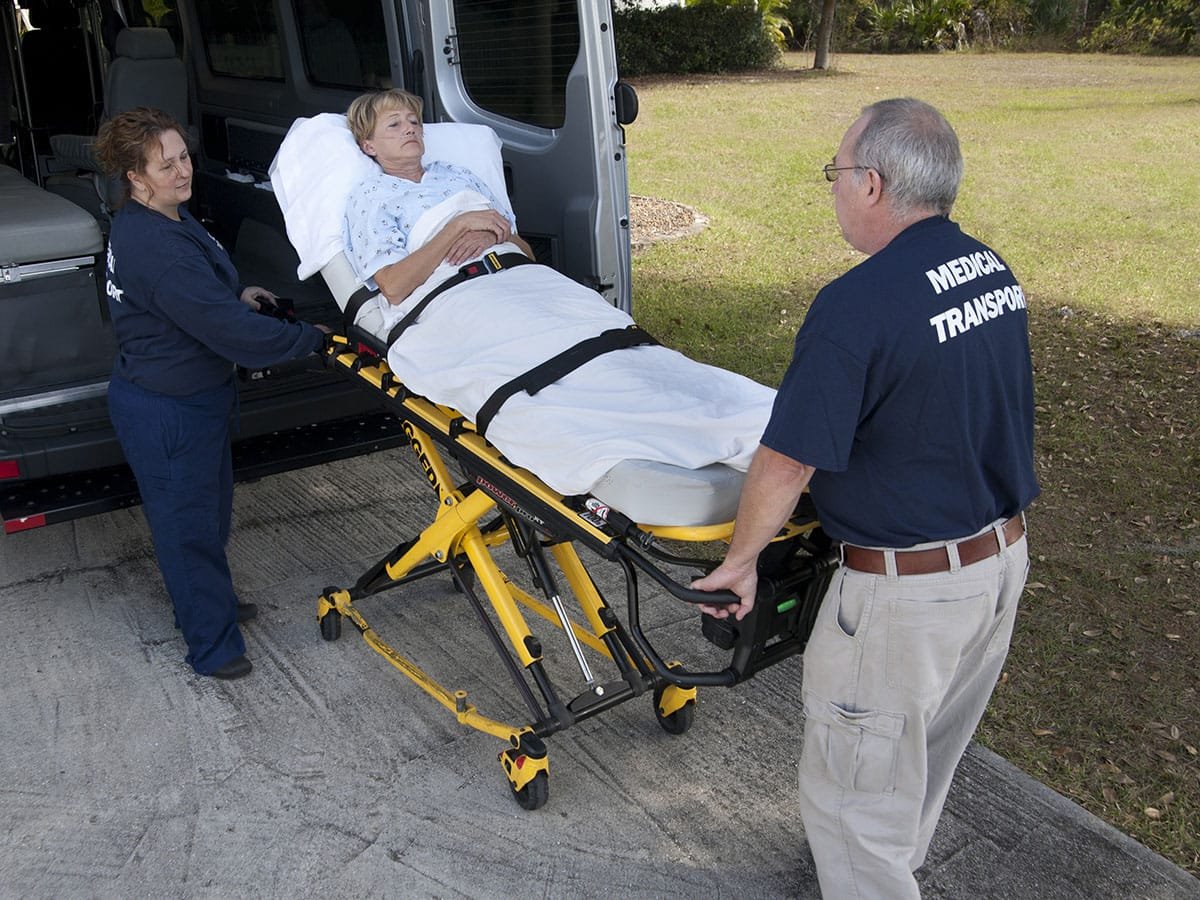Long-distance medical transportation plays a vital role in addressing the unique needs of patients with disabilities, ensuring they receive necessary medical care and support despite geographical challenges. These services go beyond routine travel, focusing on creating a safe, comfortable, and efficient journey for patients who may require constant medical attention, specialized equipment, or assistance from trained personnel. We will explore how Non Emergency Medical Transportation in New Jersey enhances accessibility, foster independence, and improve overall health outcomes for patients with disabilities.
Accessibility and Safety in Long-Distance Medical Transportation
For patients with disabilities, accessibility and safety are paramount when traveling long distances. Traditional modes of transportation often fall short of accommodating the specific requirements of individuals who may use wheelchairs, have mobility impairments, or require medical monitoring. Long-distance medical transportation providers address these gaps by offering customized vehicles with features like ramps, lifts, and spacious interiors for easy access and maneuverability.
In addition to physical accessibility, safety measures play a critical role. Professional medical transport services ensure vehicles are equipped with essential medical equipment such as oxygen tanks, defibrillators, and monitoring devices. These provisions are crucial for managing medical emergencies during transit. Moreover, trained personnel accompany patients to oversee their well-being, administer medications, and provide emotional support throughout the journey. These measures collectively reduce the risk of complications, allowing patients to travel with confidence and dignity.
Enhancing Independence and Quality of Life
Long-distance medical transportation empowers patients with disabilities by enhancing their independence and quality of life. Access to reliable transportation means that individuals can attend medical appointments, pursue rehabilitation programs, or visit family and friends without stress. This freedom significantly reduces feelings of isolation and dependence on others for mobility.
These services often include door-to-door assistance, alleviating the burden of navigating unfamiliar environments. Patients are transported directly from their homes to medical facilities, ensuring a seamless experience. This level of convenience fosters a sense of autonomy and allows individuals to focus on their health and well-being without the added worry of logistical challenges. In the long term, access to consistent medical transportation improves health outcomes, as patients are more likely to adhere to treatment plans and follow-up appointments.
Meeting Diverse Medical Needs
Patients with disabilities often require transportation that caters to a diverse range of medical needs, from chronic conditions to acute care requirements. Long-distance medical transportation services are designed to address these complexities by tailoring their offerings to individual patients. For instance, patients with respiratory conditions may need vehicles equipped with ventilators or oxygen support, while those recovering from surgeries might require reclining stretchers and pain management tools.
Trained staff play an integral role in meeting these needs. Medical personnel accompanying the patient monitor vital signs, administer medications, and provide immediate intervention. This level of care ensures patients remain stable and comfortable throughout the journey, minimizing stress and promoting recovery. The ability to accommodate such diverse medical requirements underscores the significance of long-distance medical transportation in bridging gaps in healthcare access for individuals with disabilities.
Facilitating Access to Specialized Medical Care
For many patients with disabilities, accessing specialized medical care often requires traveling to facilities located far from their homes. Rural areas, in particular, may need more advanced healthcare services, leaving individuals reliant on transportation options to reach urban medical centers. Long-distance medical transportation bridges this gap by providing a reliable and safe means of travel to specialized hospitals, rehabilitation centers, or clinics offering targeted treatments.
This access can be life-changing for patients who would otherwise struggle to receive appropriate care. Timely transportation to specialized facilities can prevent the progression of certain medical conditions, ensure proper management of chronic illnesses, and provide opportunities for cutting-edge treatments unavailable locally. Additionally, patients gain access to multidisciplinary teams of healthcare providers who can offer comprehensive support tailored to their unique needs.
Reducing Caregiver Burden
Caregivers play a crucial role in supporting patients with disabilities, but the demands of long-distance travel can be physically and emotionally taxing. Long-distance medical transportation services alleviate this burden by taking over travel’s logistical and medical responsibilities.
When caregivers no longer need to arrange transportation, manage medical equipment, or provide constant attention during the journey, they can focus on other aspects of patient care. This relief is particularly significant for families who juggle multiple responsibilities, including work and caregiving duties. Additionally, the presence of trained personnel during transportation provides caregivers with peace of mind, knowing that their loved ones are in capable hands.
By reducing caregiver stress, long-distance medical transportation indirectly enhances patients’ quality of care. Families can approach caregiving with renewed energy and attention, resulting in better emotional and physical support for individuals with disabilities.
Long-distance medical transportation offers transformative benefits for patients with disabilities, addressing their physical, emotional, and logistical needs during travel. By ensuring accessibility, enhancing independence, and meeting diverse medical requirements, these services significantly improve the quality of life for individuals facing mobility and health challenges. Furthermore, they alleviate the burden on caregivers, facilitate access to specialized care, and promote inclusivity within the healthcare system. We have explored how these transportation options bridge critical gaps in healthcare delivery, enabling patients to receive timely and appropriate care regardless of distance. With their far-reaching impact, these services are crucial in empowering individuals and fostering better health outcomes.



